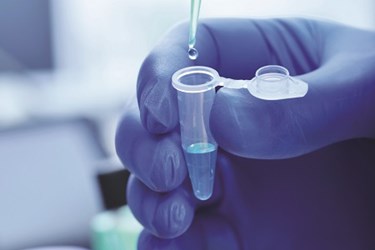MicroVAX Begins Phase I Clinical Trial For New Cancer Vaccine
By C. Rajan, contributing writer

MicroVAX, a biotech company in Virginia, will begin a phase I clinical trial for its unique and proprietary vaccine platform for patients with breast, prostate, colon, ovary and lung cancers that have relapsed after initial therapy. The trial is sponsored by the Singapore Clinical Research Institute (SCRI) and will be conducted by Dr. Toh Han Chong, Senior Consultant and Deputy Director at the National Cancer Center Singapore (NCCS).
The MicroVAX cancer vaccine is made up of the attachment of target protein MUC-1 to the potent immune stimulating molecule CD40L. This novel combination aims to boost the body's immune system to attack the surface cancer protein, MUC1, in turn killing the cancer cells. MUC1 is a high-molecular-weight glycoprotein which is expressed by more than 90 percent of cancers, and is one of the main anti-cancer targets for cancer drugs. The MicroVAX vaccine is designed to both destroy pre-existing cancerous tumors and prevent onset of cancer.
Pre-clinical testing of this new vaccine showed that the MUC-1/CD40L vaccine was successful in overcoming states of immune unresponsiveness, inducing an immune memory response, and encouraging complete shrinkage of pre-existing and progressing cancers. The results from the initial pre-clinical testing were reported in the Journal of Immunology. The vaccine platform concept originated at Yale University and later received grant support from the Breast Cancer Research Foundation, the Department of Defense, and the Sidney Kimmel Foundation for Cancer Research.
NCCS was also the recipient of a grant for SGD $800,000 from National Medical Research Council, Singapore to support the evaluation of the vaccine’s effect on immune response.
"Our main objective is to assess the safety and benefit of this unique vaccine, which aims to target a common protein on many of the commonest cancers such as colon cancer, breast cancer and ovarian cancer, and provide a specific extra boost to the immune system against cancer at the same time. We will also assess how potent this vaccine can stimulate a meaningful immune response against the cancers," Dr. Toh Han Chong said in the NCCS release.
In addition to cancer treatment, the vaccine platform is also under investigation in the treatment of several infectious diseases.
Research into cancer vaccines has increased significantly in recent years. The first therapeutic cancer vaccine for prostate cancer was approved by the FDA in 2010, and there are several other cancer vaccines in development currently, including in Phase 3 clinical trials. There are also two preventive cancer vaccines for cancers caused by the viruses, HBV and HPV.
